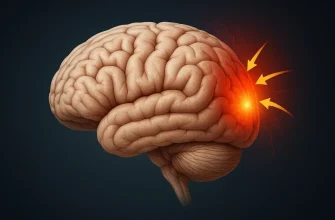Healthcare professionals may contemplate using a combination of muscle relaxers and ibuprofen to handle pain, inflammation, or muscle spasms. Achieving a balance is vital to ensure effective symptom control while minimizing any possible adverse effects. The subsequent assessment examines the pros and cons of employing this combined treatment approach.
Pros of Combining Muscle Relaxers with Ibuprofen
- Enhanced Pain Relief: The combination offers a two-fold way of working, where ibuprofen decreases inflammation and muscle relaxers focus on relieving muscle spasms. This can result in a more complete approach to managing pain.
- Reduced Inflammation: Ibuprofen is a nonsteroidal anti-inflammatory drug (NSAID) that helps alleviate inflammation, which can be a source of pain and discomfort.
- Muscle Relaxation: Muscle relaxants function in the central nervous system to alleviate muscle rigidity or cramping, frequently leading to improved movement and relief.
- Potential for Lower Dosages: Healthcare providers could potentially decrease the possibility of side effects linked to higher medication doses by prescribing lower doses of each medication while using a combination of them.
Cons of Combining Muscle Relaxers with Ibuprofen
- Increased Risk of Side Effects: Although the combination of these medications can increase the effectiveness of pain relief, it can also heighten the chances of experiencing negative effects like dizziness, sleepiness, problems with the digestive system, and a greater likelihood of bleeding if ibuprofen is involved.
- Drug Interactions: Taking muscle relaxers with other medications can be risky due to the possibility of drug interactions, which can have harmful effects.
- Overuse or Dependence: Long-term use of muscle relaxers can lead to dependence, and patients may also become reliant on NSAIDs like ibuprofen, leading to overuse and complications such as kidney damage or ulcers.
- Impairment in Everyday Activities: The drowsiness and dizziness associated with muscle relaxers can impair a person’s ability to perform daily activities such as driving, working, or operating machinery.
Healthcare Considerations
When considering the combination of muscle relaxers and ibuprofen, healthcare providers assess factors such as:
- The severity and cause of the patient’s symptoms
- The potential for drug interactions based on the patient’s current medications
- The patient’s overall medical history, including any history of substance abuse or gastrointestinal issues
- Alternatives for pain management, such as physical therapy or other non-pharmacologic interventions
Conclusion
It is recommended that patients consult a healthcare professional before using both muscle relaxers and ibuprofen together. Despite the potential advantages of alleviating pain and reducing inflammation, it is crucial to carefully weigh the potential risks of side effects, interactions, and long-term reliance. Customizing the treatment according to each patient’s specific situation ensures the most secure and successful approach to managing pain.









